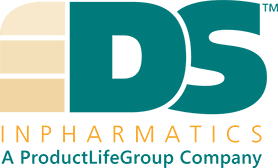Pharmaceutical manufacturing relies on the core tenets of quality, safety, and efficacy. Batch release represents a critical component of this assurance process, and this meticulously controlled procedure must be overseen by a Qualified Person (QP).

This article explores the nuances of QP certification and batch release within the European Union (EU), detailing the stringent procedures and regulations involved in this process.
The batch release process
Batch release is a comprehensive process that involves confirming that each medicinal product batch adheres to predefined regulatory requirements and quality standards. This process involves a number of key steps:
Manufacturing and testing verification
This initial step thoroughly reviews each batch's manufacturing, packaging, and testing records. Relevant documentation, such as batch records, analytical test results, and certificates of analysis (CoA), is scrutinized to confirm compliance with Good Manufacturing Practice (GMP) and any requirements outlined in the product's Clinical Trial Authorization (CTA) or Marketing Authorization (MA).
QP certification
The QP certifies the finished product batch by verifying appropriate manufacturing and testing records. This certification represents a formal declaration that the specific batch adheres to all GMP standards and the relevant requirements of its CTA or MA.
QP certification can be performed by an authorized QP associated with the EU manufacturer or undertaken by an importer specified in the CTA or MA.
The role of the Qualified Person (QP)
The role of the QP is enshrined in law in the EU, highlighting its importance to the pharmaceutical industry.
QPs are highly qualified individuals with extensive GMP experience who typically hold advanced degrees in pharmacy, biology, or chemistry. Their role is key to ensuring patient safety and producing each batch of medicinal products to a suitably high standard.
The QP must observe new medicine as it moves through the supply chain, ensuring consistently high quality and confirming that it adheres to relevant regulations. Assuming that this is accomplished and all appropriate documentation is in order, the QP is then able to approve certification and release.
The EU's “Control Authority Batch Release of Vaccines and Blood Products” document and its subsequent iterations guide the QP’s certification process. This demanding protocol ensures that each product batch adheres to strict quality requirements before entering the market.
QP certification versus batch release
QP certification is key to the batch release process, but it is also important to distinguish between the two. The QP certification step is mandatory, ensuring that the batch in question adheres to regulatory and GMP standards. Other quality personnel within the organization may, however, manage the release of the batch into the market.
QP certification remains a prerequisite for batch release in every case throughout the EU, underscoring the QP’s central role in ensuring and maintaining product integrity.
Importation and the final stages of manufacturing
The importation process is regarded as the final manufacturing stage for medicinal products originating outside the EU.
These countries are called ‘third countries,’ and these products must undergo rigorous quality testing upon arrival in the EU to ensure compliance with relevant EU regulatory standards.
This step is essential in verifying that products adhere to all necessary quality and safety criteria. Following testing, these products are required to receive QP certification before being transferred to saleable stock.
Batch release may only proceed following a comprehensive review of batch records. This ensures that every production and quality control process is appropriately documented and remains compliant with EU regulations. This layered approach to product scrutiny is key to maintaining the highest quality standards for medicinal products destined for sale within the EU.
Regulatory compliance and patient safety
The EU’s strict requirements for QP certification and batch release emphasize its dedication to patient safety. Subjecting each batch to thorough verification and certification by a qualified and authorized QP ensures that only products meeting the highest quality standards are released into the EU market.
Reliable QP certification services
DS InPharmatics understands the batch release process's importance and QP certification's central role in achieving and maintaining these high standards. The company’s team of experts is dedicated to guiding its customers through this complex landscape and supporting them in understanding and achieving QP certification.
Working with DS InPharmatics helps ensure that products meet regulatory requirements while upholding the highest standards of quality.
The company can offer QP certification and batch release services, while support from a Manufacturing Import Authorization (MIA) site ensures it can meet all regulatory prerequisites.
Partnering with DS InPharmatics affords manufacturers access to unmatched QP certification and batch release expertise. The company’s professionals are well-versed in EU regulations and remain committed to ensuring patient safety via a series of stringent quality assurance practices.
The team is available to help its clients navigate the challenges of pharmaceutical compliance, from the initial batch verification stage to the final market release.
Acknowledgments
Produced from materials originally authored by Meranda Parascandola from Design Space InPharmatics LLC.
About Design Space InPharmatics LLC
DSI provides regulatory, technical, and project management consulting services to healthcare product companies that manufacture and/or market pharmaceuticals, biopharmaceuticals, and cellular and gene therapy products.
Since 2007 we have provided our clients with innovative strategies and exceptional quality work products intended to enhance product development, approval, and marketing presence.
Whether advocating CMC strategy, directing CMC operations, or developing CMC submission content that represents the best interests of emerging biotech, we focus on the critical CMC issues and build programs that enhance development.
Sponsored Content Policy: News-Medical.net publishes articles and related content that may be derived from sources where we have existing commercial relationships, provided such content adds value to the core editorial ethos of News-Medical.Net which is to educate and inform site visitors interested in medical research, science, medical devices and treatments.